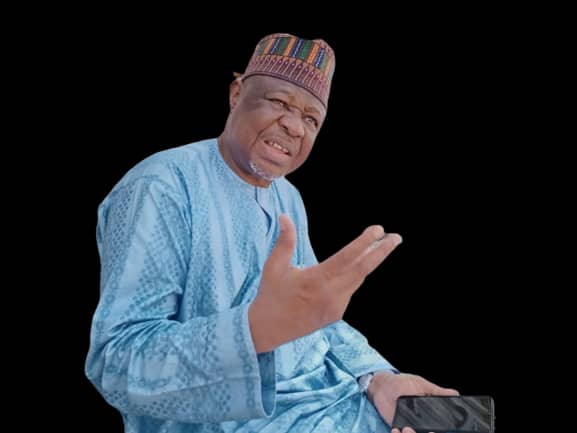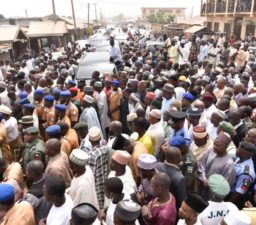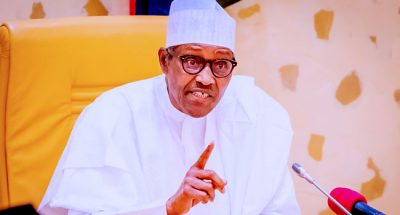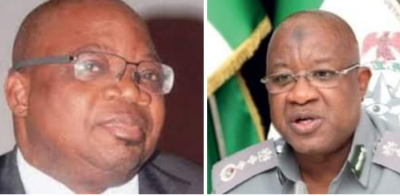*Speaks more on professionalism of Pharmacy Council of Nigeria
*Wants a revisit of dissolution of Council as vital health institution
By BASHIR ADEFAKA
“And if you are talking about war against the scourge of drug abuse, illicit trafficking and so on and so forth and you do not have the Pharmacy Council of Nigeria, it is laughable. The Pharmacy Council’s Tribunal has the power of a high court.”
Professor Ahmed Tijjani Mora, OON, mni, former Registrar/Chief Executive Officer of the Pharmacy Council of Nigeria (PCN), is the immediate past Chairman Goverming Council of the PCN, appointed in 2020 by then President Muhammadu Buhari. His Council was part of the Boards of parastatals and agencies dissolved by President Bola Tinubu, at the tail end of June 2023. Curiously, Boards of two other agencies that should co-operate with PCN as tripod, namely the Board of NDLEA and that of NAFDAC, were excluded from the dissolution. The presidential decision on the side of relevant officer appointed to act, The DEFENDER’s finding suggests, must have been ill-informed thus requiring an urgent revisiting as it is not possible for NDLEA and NAFDAC to perform effectively, in the area of drugs administration and anti-narcotic related business that has concentrated the eyes of the world on Nigeria for decades. In this DEFENDER PERSONALITY interview with BASHIR ADEFAKA on ThursdayJune 29, 2023, Professor Mora, born on May 13, 1956 in Zaria, a major city and local government area in Kaduna State, Northern Nigeria, spoke on core areas of professionalism-based national duty, among others. Excerpts:
Prof, you are welcome to this honourable club of DEFENDER PERSONALITY INTERVIEW. You are not unknown to some of those that know what is good for Nigeria in terms of contributory roles to healthcare based wealth generation, national development and war against fake drugs in Nigeria. But from what background is our personality in this interview coming from?
First and foremost, my calling is pharmacy and it has always been pharmacy. I have practiced pharmacy now since 1978 when I graduated from Ahmadu Bello University, Zaria, which is about 45 years ago now. And I have practiced in all the four core areas in pharmacy practice reaching the top in each one, Alhamdulillahi.
Until last week, I was Chairman of the Governing Council of Pharmacy Council of Nigeria (PCN) before its dissolution by Mr. President. I was the chairman for three years even though the tenure is for four years. Before then, I had served as Registrar and Chief Executive Officer of the Council the same organisation of which I later became Chairman.
I was appointed as Registrar and Chief Executive Officer through the established interview process in 2003 and it was eight years of just two terms and I was in that position until 2012.
The Pharmacy Council of Nigeria is a Federal Government regulatory agency under the supervision of Federal Ministry of Health, which is responsible for regulation and control of pharmacy education and training as well as practice in the whole aspect and ramifications.
(Cuts in) Including the universities?
I am still coming to that. In order words, two things: education and practice. So, the accreditation for the pharmacy degree curriculum in the universities is the responsibility of the Pharmacy Council of Nigeria. The responsibility of the curriculum for the pharmacy technician programme in schools and colleges of pharmacy in Nigeria is the responsibility of Pharmacy Council of Nigeria. So, that is how it is.
And then, of course, in terms of practice, every premises in Nigeria where pharmaceutical activity takes place, I am talking about pharmaceutical manufacturing facilities, pharmaceutical importation companies, wholesalers, the retail pharmacy practice, community pharmacy and hospital pharmacy as well as patent medicine vendors are the responsibilities of Pharmacy Council of Nigeria. So, these are the things that we do.
And, of cause, we take care of the discipline aspect of erring pharmacy professionals. Anybody, who has fallen short of ethics of the profession, either through misinformation, fake drugs or anything which does not seem to be proper, is brought before the investigative panel and then eventually to the disciplinary tribunal of which I am Chairman.
Just two weeks ago, the disciplinary tribunal, which I chaired, struck off names of four pharmacists from the pharmaceutical register for four years, for one infraction or the other.
The Pharmacy Council of Nigeria is a regulatory agency, like I said earlier, and there are 13 regulatory agencies in health doing one thing or the other, all going the same direction regulating and controlling.
Can we know some of these regulatory agencies in the health sector?
There are the Medical and Dental Council for doctors and dentists, Nursing and Midwife Council of Nigeria for nurses and midwives, Medical Lab Science Council of Nigeria for medical lab scientists, Radiographers Registration Board of Nigeria for radiographers and so on and so forth. They are 13 regulatory agencies put in place to sanitise the professions as it were.
From what you have said so far, I got to know about the issue of fake drugs control as falling under the responsibility of the Pharmacy Council of Nigeria, which Chairman you were for three years until last week. And also by a peep into your abridged citation I saw that you had a paper titled, “The Problems of Fake Drugs in Nigeria”. What about this?
It is not a paper per say, it is a project. I am a member of the National Institute for Policy and Strategic Studies (NIPS) Kuru, near Jos, and I attended a Senior Executive Course (SEC) of the National Institute. That is why you see ‘mni’ after my name. As part of the programme I was to look at the incidences of fake drugs in Nigeria.
You see, drugs fall into three categories. There are drugs with curative properties to cure, drugs with prophylaxis properties, that is, preventives and the drugs with diagnostic properties.
Now, in developing countries there is a big challenge in faking of products, not only in the pharmaceuticals but also, in building materials, spare parts, electronics, anything that you do fairly in developing countries you find out has faking.
The challenging thing about faking the drugs is the fact that these are chemicals, processed products meant to cure, then the curative effect, the diagnostic effect and the prophylaxis effect will not be there and, eventually, the people will die. The pharmacist is the only practitioner in health, who is licensed to manufacture pharmaceutical products in Nigeria and, indeed, the world over. It falls on us to ensure that the manufacturing process is actually guided by what is called Current Good Manufacturing Practice (CGMP). Everything has a process and there is a compendium of it.
Therefore, before any pharmaceutical facility rolls out pharmaceutical product, Pharmacy Council of Nigeria must send its own representatives to go and visit to check the plant’s layout, the CGMP, the personnel and so on and so forth. The same thing with NAFDAC, which will also do the same to ensure that the plant has proper compliance so that any drug coming out from this pharmaceutical facility is fit for people’s consumption.
Confidence building
In drugs manufacturing there are two things you do not compromise: safety and efficacy. If any drug is very, very efficacious but safety margin is low, you do not use it.
Under your administration, where did Pharmacy Council of Nigeria (PCN) come to collaborate with the NDLEA, NAFDAC and other agencies in this regulatory business?
NDLEA deals with illicit drugs. By this I mean the drugs that are not used for medication. We (pharmacists) deal with therapeutic drugs, that is, drugs used for cure or therapy. But NDLEA’s responsibility is to tackle or control trafficking in hard substances, for example, marijuana and certain drugs or pharmaceutical products that are therapeutic by nature but, when taken beyond therapeutic dose, will have an effect in the mind.
So, any drug, whether herbal as in ashes, solution as in solution, leaves as in dried weeds, high dosage formulation or tramadol from 50 milligrams, which we know for cure, to may be 200 milligrams manufactured somewhere in Nigeria, is the responsibility of NDLEA.
Furthermore on collaboration, as the Chairman of Pharmacy Council of Nigeria, I was on the Board of NAFDAC. The Chairman of NDLEA is also on the Board of NAFDAC. The Pharmacists Council of Nigeria changed in August last year and we are now called PHARMACY Council of Nigeria, which is why in this interview you find out I have been saying ‘Pharmacists Council’ out of familiarity. The DG of NAFDAC is on the Board of Pharmacy Council of Nigeria, which I chaired.
So you can see the collaboration between NAFDAC, Pharmacy Council and NDLEA.
(Cuts in) You are interwoven…
We all have to work together. The only thing is that it is curious that the Federal Government has dissolved all governing councils of the regulatory agencies, and it has the right to do so. But, then, all of a sudden they said NAFDAC and NDLEA are exempted, which is very curious to anybody who is a commentator on the health profession.
Curious, how?
It is curious because, yes the Chairman of the NDLEA, Brigadier General Mohamed Buba Marwa (Rtd), is doing a fantastic job; the DG NAFDAC is doing a fantastic job, but the two of them alone cannot effectively control illicit drugs in Nigeria. They cannot. It must be the totality of all the healthcare regulatory agencies, especially Pharmacy Council of Nigeria (PCN), working together. Because, we are talking about the one that prescribes, ensures the formulation of a product is in compliance with therapy.
If you go beyond that formulation or the dosage is higher, then, it goes towards addiction. Like we have psychotropic drugs, that is, the drugs that elevate the mood, reduce the mood or control the mind. These are pharmaceutical products and the pharmacy is the one who manufactures these drugs and he is the only person, who can advise on them. Now the Council is not there.
And what is the implication of health regulatory agencies not being made to work together?
Like I said, the Pharmacy Council of Nigeria’s governing council has been dissolved while others are allowed to continue. The implication is that, in terms of infractions, who are you going to arrest? If you have some infractions made by pharmacists within NAFDAC, for instance, and there is no Pharmacy Council of Nigeria, how do you arrest them? You cannot arrest them? The Pharmacy Council is the only regulatory body, which can investigate and then punish them.
And if you are talking about war against the scourge of drug abuse, illicit trafficking and so on and so forth and you do not have the Pharmacy Council of Nigeria, it is laughable. The Pharmacy Council’s Tribunal has the power of a high court.
(Cuts in) Just like you want to bring a criminal to court without the Nigerian Police Force?
Of course, in fact you are correct. For whatever reason the former administration of President Muhammadu Buhari, in his own wisdom let me put it that way, between 2015 and 2020, there was no Pharmacy Council in place. This shows you that regulatory agencies are not political because, if they were to be political, there would have been pressure from politicians for it to be reconstituted so that they could fill in the places.
Last year around September, the term of Medical and Dental Council of Nigeria expired, it is nine months now, it has not been reconstituted. That is for medical doctors. Now, if there is a political dimension within the ambit of the medical and dental council, there would have been pressure on Mr. President to reconstitute it. But there is none because it is a professional thing.
For instance, in Pharmacy Council, you only appoint the chairman. That is all. Every other person is statutory. It is a 73-member council, I was the only one appointed by Mr. President. Now, it is dissolved, so no governing council.
How does that affect the operationality of the war against fake drugs in Nigeria, consideringthe managementis not dissolved?
Of course, management is there to do their work but, with them, you cannot arraign anybody. You cannot constitute accreditation panel to universities. You have to refer to the Minister and there is no minister now. You have to go to the Federal Ministry of Health, where they have about 110 parastatals. So, how do you imagine the registrar will do his duty? It is going to be chaotic.
I just assume that it is a blanket thing, which happens in administration, they will look at those that are not supposed to be dissolved and bring them back just like the NDLEA, NAFDAC and National Hajj Commission (NAHCON). That is the position but there is a big gap here that needs to be urgently addressed, just like President Bola Tinubu is doing and that is one thing I like about his administration. They listen.
Somebody has misadvised the Secretary to the Government of the Federation (SGF) not President. The President has already appointed the SGF. These are under the ambit of the SGF. So, somehow, the SGF has not been properly advised. Every member of the healthcare sector has a responsibility to ask for the SGF to remind him of correction to be taken.
Just like NAFDAC and NDLEA boards were said to have been dissolved but later brought back with a word that they were never part of it?
Even the 13 regulatory agencies in health, only seven are active including Pharmacy Council of Nigeria. All others, their terms expired and they have not been reconstituted since last year. So, you can see what I am trying to say is this, if you think that the dissolution of all the governing boards and councils in Nigeria has political coloration, fine. But that does not include the health regulatory agencies because they are not political. They are professional. They are technical. Without them, the country will be in chaos.
Since this interview is about your personality and I have come find out that you are an old boy of Barewa College, Zaria. What is this thing about cult-like nature of old students of the college, I mean the bond that bind you strongly together in all ramifications, and who were your mates?
First person I will mention is no other person than His Eminence Alhaji Muhammad Sa’ad Abubakar, CFR, mni, the Sultan of Sokoto and the President-General of the Nigerian Supreme Council for Islamic Affairs (NSCIA). He was my classmate and we have been very close friends until 2021, just two years ago, when he now became ‘my father’.
How?
Because he gave me a title (laughs) in Sokoto and so I am no longer a friend now but a son to him.
That is fantastic to hearing. Could we continue?
Then we have Lieutenant General Abdul-Rahman Danbazau, the former Minister for Interior, who was Chief of Army Staff. He was my classmate. We have Professor Abdulmumini Hassan Rafindadi, who was the first Vice Chancellor Federal University, Lokoja. He is from Katsina State and we are very close right from our parents. His father and mine were very close and we are all very close.
There is also Mohammed Abdullahi “Anatika”. He has been a rector in the polytechnic system, registrar and so on. There is Dr. Abdulsalami Yayu of Bayero University Kano; there is also His Royal Highness Alhaji Muhammadu Abali Ibn Muhammadu Idrissa, CFR, the Emir of Fika, who is the Chairman of the Yobe State Council of Traditional Rulers. He was my classmate, then His Royal Highness Alhaji Ya’u Usman Kauru, the Emir of Kauru in Kaduna State, Alhaji Tijjani Musa Isa, FCA, the immediate past President of ICAN, His Royal Highness Jonathan Zamuna of Piriga in Lere Local Government Area of Kaduna State, Rev. Danjuma Byang, a pastor in Jos, Alhaji Zakari Mohammed Sada, FCA, the Chairman BOBA (1970 intake) and from 2012 till date.
Also Dr.Mohammed Ali Hussaini, mni, retired Permanent Secretary in BASG, His Excellency Ambassador Haroun Umar, a retired diplomat, Mr.Musa Tugga, a retired Director from one of the Federal Ministries, Dr.Bashir Ahmadu Darma, a medical doctor, Mallam Azeez Bashir, former Bursar of Adamawa State University (ADSU), Mubi, and so on and so forth.
Then among the military people who were my classmates, there is Lieutenant Colonel Rotimi Ajetumobi. He is a medical doctor but into the Nigerian Army. There are also Aminu Lukman, Wing Commander Sule Ahmed Tijjani in the Education Corps of the Nigerian Air Force. They are all retired people now. Among the pharmacists there were Muhammad AbdulKadir, Lawal Bala Kazaore.
In all aspects of endeavour, my classmates are all represented. We have engineers, quantity surveyors, doctors, pharmacists, lawyers and so on and so forth.
In his Ungwa Sarki GRA residence during his lifetime, former Governor of Old Kaduna State, His Excellency Late Alhaji Balarabe Musa, responding to a postulation by me said, “You cannot be like me because the Nigeria that made me is different from the Nigeria that made you”. Is there any link between that and the lineup of classmates that you just mentioned in the sense that virtually everyone that was your classmate is a successful man today. What is the secret of that?
We went to Barewa College when it was Government College, Zaria. It was a premier public institution in Northern Nigeria established in 1921. In fact I have been so active in the Association. I rose to become the Secretary General of BOBA, Barewa Old Boys Association. It was established in 1921 as Katsina College by the British Colonial Administration. In 1929, it became Katsina Higher College and in 1938, the British relocated the school to Kaduna and it became Kaduna College, which was there from 1938 to 1949 then it was brought to Zaria and where it started as Zaria Secondary School. And then in 1956 it was christened Government College, Zaria and that was when we entered.
In 1971 when we had the Golden Jubilee celebration, the school’s name was changed to Barewa College.
But why Barewa? Is my lack of knowledge a result of Language difference?
Barewa is a very swift animal in the savanna forest. It is the name of an animal called gazelle or antelope and the name is used in Hausa as Barewa that is logo and we have our own motto in Arabic as “Monjada wa jada” meaning, “He who seeks finds”. You know if you seek you find.
So, we are coming from that background and the fact that Barewa is the only secondary school in Nigeria and West Africa that has produced five Heads of State namely Sir Abubakar Tafawa Balewa, General Yakubu Gowon, General Murtala Muhammed, Alhaji Shehu Usman Shagari and Umar Musa Yar’Adua. Only General Gowon, among them, is alive now and is the Chairman of the Board of Trustees of BOBA.
So, you look at those people who have given all their lots to the service of the country, you cannot bring down the name of the College. And besides, for you to get to Barewa College, like I told you it was the only one in Northern Nigeria, you must have distinguished yourself in your province; you must have taken either the first or second position your school. It is a merit based system. That was where everybody went to.
As at the time we did 100 years anniversary of establishment, we had produced about 50 Ministers, about 50 Governors, four Chiefs of Army Staff, four Inspector General of Police, so many disciplines that you know, Barewa College product is there.
Coming from that back, you find out that when we were at Barewa nobody cared to know who your father was. His Eminence that I mentioned, his father was the 17th Sultan of Sokoto, late Sir Siddique Abubakar III, but he was not given any preferential treatment. That is why the es spirit de corp between us is very strong.
As a Muslim and as a prefect, I punished a Christian boy for not going to Church. The Christian prefect would punish a Muslim for not going for prayers in the mosque. That was how we were at Barewa. I am telling you, we do not have any segregation among us.
And we are now talking about Nigeria that needs to invest more on peaceful co-existence as a project. So, let us have the model of Barewa College?
The model of Barewa College is simple. Nobody cared about where you came from. It was never an issue. Let me tell you something. About six years ago or so, one of our classmates, who was a nurse working with ABU Teaching Hospital, Bitrus, died and another of our classmates came to me because I was the class chairman of our class for about 18 years before I became Secretary General and then I stepped down for my deputy to take over. Then we went to the house to condole with his wife. They are from South Zaria, Christian, with the women crying.
You know in Kaduna State we have our own share of all these communal clashes. So the wife was greeting and said to everybody that, “Thank you very much” and that the Sultan of Sokoto Alhaji Muhammad Sa’ad Abubakar phoned her from Dubai. It was a big surprise to the women and they said, “What?” And she said “Yes” that Sultan called her from Dubai.
I was the one that told him that Bitrus died and he said “Give me the telephone number of the wife” and I gave it to him. He is like that. He phoned her to condole with her. Those (Christians) could not believe.




